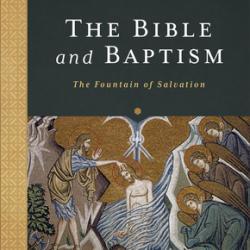You don't need to have read the Left Behind series to appreciate Fred Clark's slow roasting thereof. His combination of insight and sarcasm regularly has me laughing out loud. His most recent post is no exception. And at its core, it tackles a serious issue: the way the death of the character Jaime in Nicolae: The Rise of Antichrist exposes Tim LaHaye's view of hell:
I understand why a quick and painless death is usually thought of as preferable to a slow, drawn-out process of agonizing pain, but in the case of unsaved Jaime, this instantaneous death meant he had no last chance to pray the magic prayer. What good is one last instant without pain if it is immediately followed by an eternity of conscious torment in Hell? It would have been better for Jaime to have been crucified slowly so that — like the thief at Calvary, he might have at least had that final agonizing opportunity to plead for salvation. Even the most agonizing earthly death, after all, is nothing compared to the suffering that poor Jaime now faces, forever and ever and ever, in Hell.
I really don’t know what to make of this scene. On the one hand, it’s admirable, in a sense, that the authors don’t flinch from the implications of their belief in Hell. In their theology, anyone who does not act to save themselves is damned for eternity. Jesus does not save sinners, in this theology, sinners save themselves by “accepting” Jesus. Jaime died without doing that, therefore Jaime is in Hell.
This saddens Tsion and Buck, and I believe in this case it is meant to sadden readers. That’s a somewhat refreshing change from these books’ usual delight over the damnation of the unrighteous. But Tsion, Buck and the authors can’t allow themselves to dwell on that sadness because Tim LaHaye’s theology can’t withstand any exploration of why that should make us sad.
We’re sad because we don’t want Jaime to be in Hell. He was a good guy. Every portrayal of him in this story was positive. He was loyal, faithful, reliable and brave. Those are good qualities and it seems wrong that someone who displayed such good qualities should be punished — punished absolutely with the same absolute punishment that awaits Nicolae and Stonagal and Fortunato and every other despicable villain in this story.
One cannot be sad for Jaime for very much longer than an instant or two without becoming angry as well as sad. For Jaime to be tortured for all of eternity seems unfair and unjust and simply wrong. Logic would suggest that if it seems unfair and unjust to us, then it must seem even more unfair and more unjust to God. But that’s not what LaHaye’s theology says. LaHaye’s theology says that anything less than the eternal, never-ending torture of Jaime would offend God’s insatiable need for vengeance.
The damnation of Jaime, then, seems like a dangerous subject for this book to have addressed. It tempts us to mourn for Jaime, and mourning for Jaime borders on blasphemy — on thinking that we are more loving, more just, more good than God.
Or perhaps, even more dangerously, this scene briefly exposes readers to the reality of LaHaye’s theology — which teaches that, in fact, we are more loving, more just and more good than this hellish God of insatiable vengeance.
Click through to read the rest of the post, and if you have never done so, I encourage you to read more of his ongoing review series.













